- Home
- Andy McNab
Fortress Page 7
Fortress Read online
Page 7
‘Mamina’s baby,’ she whispered. ‘I am so proud of you.’
He knew this was a lie. Why do you do this with criminals? Where is the job? she had blurted out once when he showed her a conference programme that featured his name. He still looked forward to when he could tell her he was officially a lecturer, though that goal seemed to have receded beyond his reach – again. Bursaries and fellowships were way beyond her understanding, yet all the time his brother had been at home on his arse in front of Medal of Honour, it was ‘poor Karza’.
She waved at the group of friends who had respectfully withdrawn so they could have this moment together. ‘They all saw you on the television.’
They, not you, he wanted to say. But he didn’t. He smiled and took the compliment anyway. He couldn’t help it: he had always been a sucker for her praise – however guarded. A part of him that he didn’t want to own up to was aware that it was almost worth coming all the way up here for.
But he knew the moment would be short-lived.
‘Since Karza left, you don’t know how hard it’s been.’
He loosened the embrace and stepped back. ‘Well, you’ve got Jimmy now.’
He had noticed her charming their Cypriot landlord even before his father had left, praising him for letting them live in the cramped, badly ventilated flat above his shop. Such a kind man, so good to my boys. It was true: Jimmy gave them Cokes from his fridge, change for the slot machine and free kebabs. Then she had appeared in new earrings, shoes, a winter coat. He soon realized what she was doing to secure these favours, as he turned up the TV to drown the squeals and gasps that floated up from Jimmy’s room behind the shop when she was ‘helping downstairs’.
But even as a teenager, he was relieved that someone else had come along to take the heat off him and carry the burden of bankrolling her and Karza. One major up-side of Karza taking off: he wasn’t leeching off them any more. But no matter where he was, dead or alive, he still exerted a powerful force over her.
‘But no Karza …’ She was still talking about him, her face clouded with sorrow.
Jesus, families, thought Sam. They really do fuck you up.
She looked at him with those sad Labrador eyes. ‘Jimmy is the kindest man but there can be no joy, only pain, while Karza is …’ She couldn’t finish the sentence.
He put his arm round her.
She nestled her head against his neck. ‘Will you do something – anything – to bring him back? Will you?’ She lifted her head away and fixed him with one of her trademark stares, gradually taking a deep breath that, depending on his response, would erupt in a wail of pure sorrow or an exclamation of love and joy.
He heard the words leave his mouth as if with a will of their own. ‘All right, I promise.’
Her face lit up. She pulled him to her again, squeezing him tight. Then, just as quickly, her mood changed. ‘Sahim, please go now to the flat and get my passport.’ She rummaged in her bag and produced a huge ring of keys. ‘It’s in my bedside table – top drawer.’
16
Sam slept fitfully in an antiseptic hotel near the station. He had nodded off watching Sky News and it was still playing when he woke up. Another night of violence …
His phone was buzzing: Helen.
‘Hey, sweetheart. So glad you called back.’ He had left several messages the night before.
‘Where are you?’
‘I had to go up north.’ He knew that would do. She never asked what he was up to.
‘Oh.’ She sounded put out.
‘Baby, I’m so sorry. Are you missing me? I thought you had a big shoot today.’ He seemed to remember her talking about a chocolate commercial.
‘Um – well, I just wanted to talk.’
‘Did you have a bad day?’
‘No – I’m just a bit freaked out about everything that’s going on.’
She had never mentioned the riots before.
‘Look, I’ll be back tonight. Promise. Okay? And I can put your mind at rest about everything.’
The thought of being back in her arms, smothering his face in her blonde curls, filled him with excitement. God, he fancied her.
‘Okay.’ Her voice was muted.
Oh, well. ‘Bye. Love you.’
Bala’s estate was a two-mile walk. In the daylight the centre of town seemed to have returned to business as usual. The exercise sharpened him and he soon forgot about Helen’s ominous tone. Further away from the centre, the damage was apparent. The estate was a ghost town of abandoned houses. Pavements were strewn with litter from overturned bins, glass from smashed windows and windscreen. A burned-out corner shop still smouldered. His mother had been right. Not since Bosnia had he seen anything like this. He didn’t expect to find someone home but at least he could say he’d made the effort. He’d ask anyone he did see around the estate, then get the hell out.
But they hadn’t fled. Bala’s father was up a ladder, nailing plywood over a smashed upstairs window. All the others had been boarded up.
‘Hi, Mr Pazic.’
Mr Pazic looked down at him, said nothing, and carried on hammering. Sam guessed they blamed Karza for pressuring Bala to go with him to Syria.
The front door wasn’t locked. He pushed it open. From the front room came the sound of a TV talk show turned up loud.
‘Anyone home? It’s Sam.’
In the semi-darkness, he could just make out a small child gazing at him from a doorway before she was pulled back. A woman’s face appeared. He almost didn’t recognize her: Bala’s sister, Jana. She kept her eyes lowered. Another ghost from his past – but one he wasn’t unhappy to see. ‘Jana. Hello. Is Bala home? I need to talk to him.’
She looked at him for what seemed a long time, a mixture of emotions passing over her face, like fast-moving clouds. Somewhere under the pasty olive skin and tired, sunken eyes was the idealistic teenager he had once kissed in the bus shelter. The headscarf made her seem much older, as did the expression of sullen resignation. He nodded at the child clinging to her skirt. ‘Yours?’
She said nothing, but indicated the room where the TV sound was coming from. He knocked, but the volume was too high. She stepped forward and hammered on the door. ‘Bala! Someone here for you.’
There was no answer. She shrugged. ‘Just go in.’
‘Why’s he got it up so loud?’
She stared at him for a few seconds. ‘He says it drowns it out – the stuff in his head. That and the skunk.’
The room was thick with the sweet, heavy smoke. Sam looked back at her and smiled, but she gazed past him blankly and pulled the child into the kitchen.
The TV volume shot up as the door swung open.
‘And I’m tellin’ ’im, she shows ’er face round our ’ouse, I’ll not be answerable for my actions, bladdered or not. Same goes for any of them kids what he’s had with her.’
On the TV a huge woman in a strapless top was jabbing the air with a heavily ringed finger. Two other women, similar but younger, were holding on to her as if she was liable to launch herself at the skinny, bearded, ponytailed man she was pointing at, seated in a separate chair the other side of Jeremy Kyle.
Sam focused on the solitary armchair pulled up close to the screen. He wouldn’t have recognized Bala. The beard was new, as was the shaved head. A stick lay tucked against the chair. He had put on at least twenty kilos. He wore a khaki vest and shorts. The stump of his left leg was wrapped in gauze.
‘Hey, bro.’
Bala lifted his eyes and frowned.
‘It’s Sam, Karza’s brother.’
‘I’m not blind.’
‘Well, it’s been a while.’
Sam lifted his hands and let them drop to his sides. He couldn’t think what to say next. The sight of the stump made him feel queasy. What if something like that happened to Karza? Or worse? ‘So – ah, a lot’s happened since I was last round here.’
He remembered sitting alone in this room with Jana, waiting for Karza and Bala to com
e in so he could take his brother home. He had fancied her, all right, but he’d known that at the first sign of anything serious between them, her parents would have seen it as permanent and he had other plans.
Bala let out a long, smoky sigh and turned back to the screen.
‘I need your help.’
At least that made Bala smile. ‘That’s a first.’
‘Mum’s worried about Karza. She wants me to find him.’
Bala snorted. ‘Good luck with that.’
‘She hasn’t heard from him in five months. She doesn’t even know if he’s still alive.’
He raised his shoulders, let them drop, then looked back at the screen.
‘Anything you can tell me to make a start, like where you last saw him?’
‘When they drove off and left me for dead, you mean? About fifty K east of Aleppo. That help you?’
Sam had always assumed that Bala was the more reckless of the two. Their mother had always said he was a bad influence. But listening to him now, and thinking of Karza posing absurdly with his ammunition belts, it occurred to Sam that maybe he had got it wrong and it was the other way round. Their mother would have been in denial, of course, as she so often was where Karza was concerned, and having Bala to blame would have perfectly suited her picture of his brother as the innocent, misguided dupe of more dominant personalities.
‘Can you just give me something? Who bought your tickets or who got you across the border? Someone I can ask.’
‘We drove.’
‘To Syria? From here?’
‘Taking medical supplies for a charity.’
‘Which one?’
He shrugged.
‘Which group were you with?’
‘Jaish Muhajireen wa Ansar. That’s the Army of Emigrants and Helpers – since you don’t speak the language.’
God, he was a pain. Sam bet he didn’t speak more than two words of Arabic either, but he was fluent in self-righteousness.
‘We were in an assault on a Scud base near Aleppo, then an army barracks at the airport.’ He shook his head. ‘Karza got lucky – he always does. They let him use the RPG and he scored a direct hit on a bus full of government conscripts. Went right to his head.’
Sam struggled to get his head round the idea of his little brother as a killer. Even after they’d received the photograph and he had seen Karza’s expression, he had dismissed it as showing off.
Bala sucked on the spliff until it glowed back to life. He reached forward and scratched his ankle, where something was bulging inside his sock.
‘What’s that?’
‘You should know. Aren’t criminals your special subject?’
Bala pushed his sock down. An electronic tag. ‘Cos I’m such a danger to society. I’m on a TPIM. You’ll know what that is.’
Sam did: Terrorism and Prevention Investigation Measures had replaced Control Orders but did much the same, a blunt instrument to keep tabs on would-be terrorists.
‘Just cos of going to Syria, never mind I didn’t fire a single shot.’
The smoke was starting to get to him, irritating his eyes. Bala coughed heavily into the hand that held the spliff, then waved it at Sam. ‘You don’t get it, do you? They’ve declared war on us. How’re we gonna fight back?’
Sam said nothing. He let him rant on.
‘Even you, with your degree, you’re still a target. We’re all targets. Better make up your mind which side you’re on.’
Sam decided not to engage with this. He’d come about Karza. ‘The Army of Helpers – do they have anyone based in the UK?’
Bala gave him a withering look.
‘Okay then, whoever organized the van you drove there. Just somewhere I can start. Come on, man. Mum’s bloody desperate.’
Bala reached for a Biro and tore off a corner of the local paper, scribbled something and passed it to him. On it was the name ‘Leanne’ and an address on the other side of Doncaster. ‘They worked out of there.’
‘Leanne?’
‘It was her house. She was the co-ordinator. Your brother had a bit of a thing for her. Maybe she’ll know something.’
‘Any phone number or surname?’
But Bala was done. He turned back to Jeremy Kyle. The large, beanbag of a woman had dissolved into sobs and was being comforted by her similarly shaped supporters.
Sam exited the room and turned towards the front door, but Jana was there, the child still clutching her long skirt. Like him, she had gravitated away from the other Muslims at school. Once, Sam and she had even talked about taking off for London together, escaping the stranglehold of family life. He tried to think of something to say. ‘Last time I saw you, you were in hot pants.’
It sounded clumsy and out of place.
She looked at him blankly. ‘Then you’ve not seen me in a long time.’
He gestured at her clothes. ‘How come?’
She ignored the question. ‘You going to help him or what?’
‘Bala?’
‘You saw that thing on his leg.’
‘It’s up to the authorities. The TPIM expires after two years.
He needs to stay out of trouble, though.’
‘Yeah, like he’s going to blow up a bus or something.’
He tensed, prepared himself for another speech. You don’t like this? Try Egypt, or Libya, he felt like saying. If only they understood how lucky they were to be here. In a hundred other countries Bala would have been locked up and forgotten – or tortured.
‘And that lot who’ve attacked us all along, before this kicked off. They gonna be tagged? How long do we have to go on getting battered, shit through our letterbox, bricks in our windows before you do something about it?’
‘Look, Jana …’
She pursed her lips.
‘… I’m just trying to find my brother.’
‘Fuck your brother. He got Bala into this.’
Victimhood: he could have written a whole dissertation on it. It was like a plague that had crippled the community, breeding a toxic combination of self-pity and thwarted entitlement. Thank God he hadn’t got involved with her. Instead he had got away. But something about the way the light had gone from her eyes touched him. ‘You’ve changed.’
She glared at him, then gestured at the boarded-up windows round the front door. ‘It’s not me that’s changed. It’s out there that’s changed.’
17
Doncaster
The house was Victorian, one of a terrace that seemed to go on for ever, winding up the hill. There was no sign of rioting in this part of town and, for that matter, no sign of any Muslim presence. A removal van was parked outside, its engine idling, the driver reading a paper propped on the steering-wheel. ‘War Zone Britain’ was the headline.
Sam pressed the entryphone. Above it there was a small security camera. He looked into it, trying to appear pleasant and unthreatening.
‘Yes?’ asked a metallic voice, through the speaker.
‘I’m here to see Leanne.’
Silence. He was about to press again when the door inched open. An elderly Asian man in a suit jacket that was too large for him peered out.
‘Is she here – Leanne?’
The old man continued to stare at him. ‘Wait.’
He shut the door.
It was raining hard. Sam started to feel foolish, his already battered morale ebbing away. Then the door opened again and a woman in her mid-twenties, pale but with large dark brown eyes, stood in front of him. Her face was attractive but unanimated, like an empty canvas waiting for someone to add the character.
‘Leanne?’
She didn’t answer, just waited for him to say something else.
‘I’m here about my brother – in Syria.’
She frowned. He guessed what she was thinking: that he didn’t look the part.
‘We’re from Bosnia originally.’
He couldn’t remember the last time he had owned up to this. He’d never raised it with Helen and she
hadn’t asked. It sounded weird and out of context.
She opened the door wider and gestured for him to enter. For a second she reminded him of Helen. He felt a sharp pain as his conversation with her came back to him.
‘Are you Leanne?’
She had a maroon scarf draped over her head, and wore a long dark green smock with loose trousers. He followed her down a hall stacked with boxes into the kitchen where there were more boxes and black sacks. She stood in their midst.
‘Leanne’s not with us any more.’
Her speech was oddly formal. He also detected the trace of an American accent.
‘I’m Sahim.’ He felt the occasion merited his real name.
‘Nasima.’
‘Are you with the same organization?’
‘Just the medical supplies.’
Her tone was cool. Even though she had invited him in he felt he had already outstayed his welcome.
‘Look, I’m not – I’m just trying to trace my brother. He went to Syria – with this organization’s – seemingly with the help of this Leanne. A friend went with him – Bala Pazic – but he came back. He was injured. He was the one who told me to come here.’
She peered at him, frowning. ‘I’ve seen you on TV.’
For the first time in a grim twenty-four hours he felt a small glow of pleasure. ‘Oh. Thanks. It was just – a few appearances.’
She made no comment as she moved towards the cooker and opened a cupboard. ‘Tea?’
All her movements were as economical as her speech, as if she was conserving her energy. She retained the same fixed half-smile she had greeted him with at the door.
‘Yes, thank you.’
Something about her accent told him she wasn’t British by birth, but her manner suggested she was very much assimilated, just like him. He felt comforted by that.
He heard floorboards creaking above.

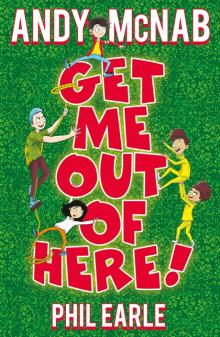 Get Me Out of Here!
Get Me Out of Here!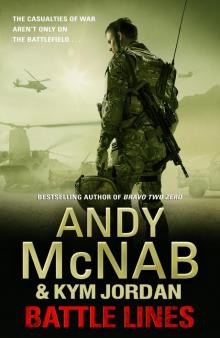 Battle Lines
Battle Lines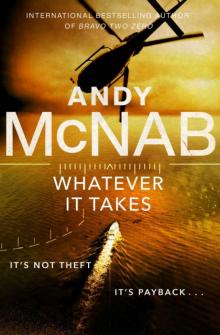 Whatever It Takes
Whatever It Takes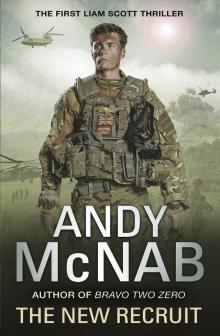 The New Recruit
The New Recruit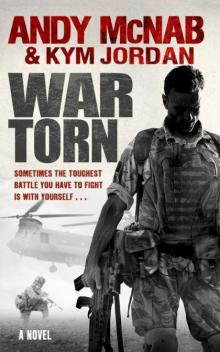 War Torn
War Torn Brute Force
Brute Force Crossfire
Crossfire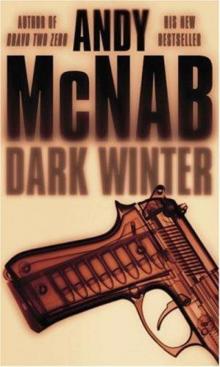 Dark Winter ns-6
Dark Winter ns-6 The Grey Man
The Grey Man Spoken from the Front
Spoken from the Front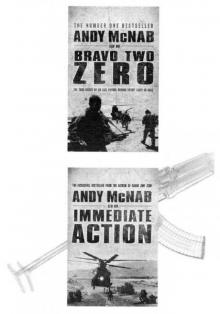 Meltdown
Meltdown Recoil
Recoil Nick Stone 1 - Remote Control.
Nick Stone 1 - Remote Control.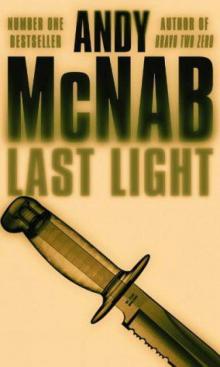 Last Light ns-4
Last Light ns-4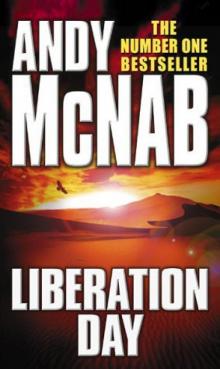 Liberation day
Liberation day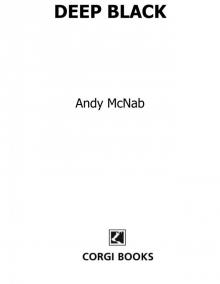 Deep Black
Deep Black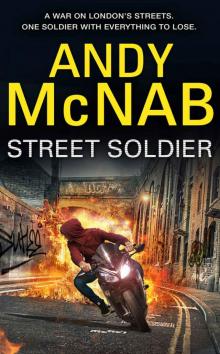 Street Soldier
Street Soldier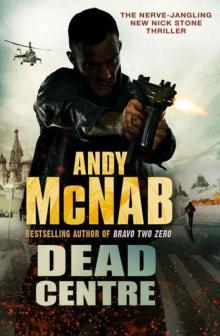 Dead Centre ns-14
Dead Centre ns-14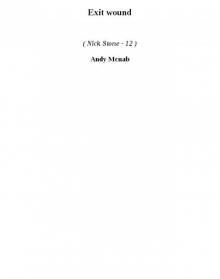 Exit wound ns-12
Exit wound ns-12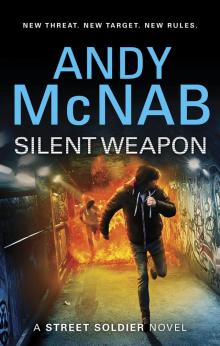 Silent Weapon
Silent Weapon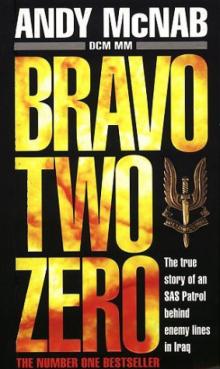 Bravo two zero
Bravo two zero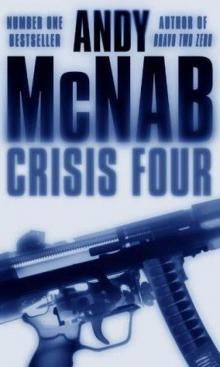 Crisis Four ns-2
Crisis Four ns-2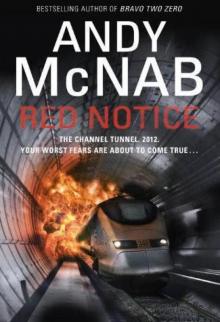 Red Notice
Red Notice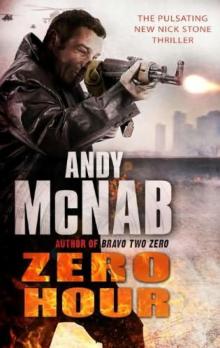 NS13 Zero Hour
NS13 Zero Hour Firewall
Firewall Last Light
Last Light Aggressor
Aggressor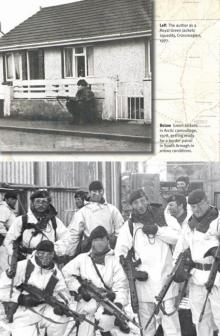 Seven Troop
Seven Troop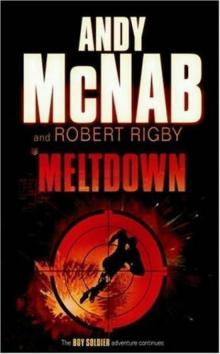 Meltdown bs-4
Meltdown bs-4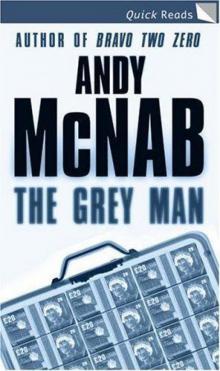 The Grey Man (quick reads)
The Grey Man (quick reads)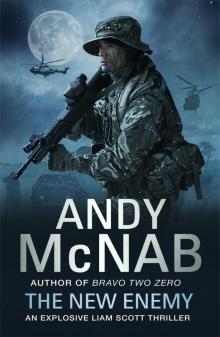 The New Enemy
The New Enemy Avenger
Avenger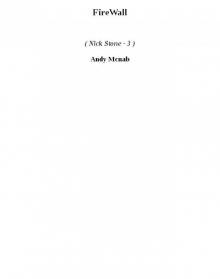 FireWall ns-3
FireWall ns-3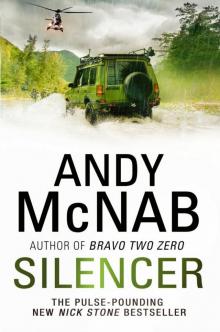 Silencer
Silencer Last Night-Another Soldier…
Last Night-Another Soldier…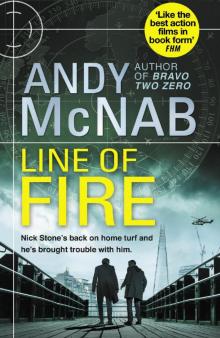 Line of Fire:
Line of Fire: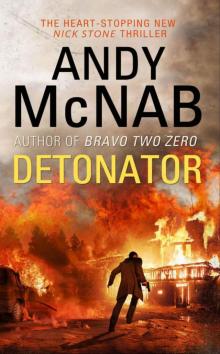 Detonator
Detonator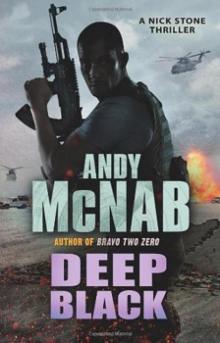 Deep Black ns-7
Deep Black ns-7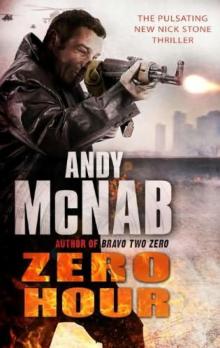 Zero Hour (2010) ns-13
Zero Hour (2010) ns-13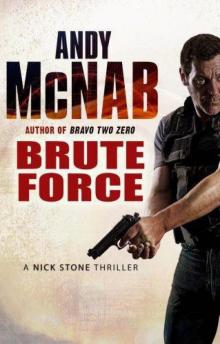 Brute Force ns-11
Brute Force ns-11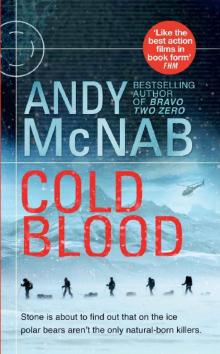 Cold Blood
Cold Blood Terminal Velocity
Terminal Velocity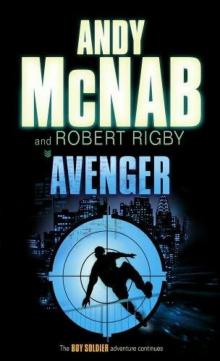 Avenger bs-3
Avenger bs-3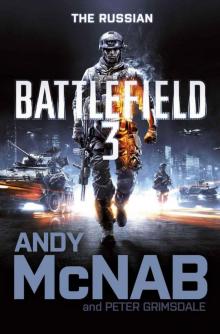 Battlefield 3: The Russian
Battlefield 3: The Russian DropZone
DropZone Zero Hour
Zero Hour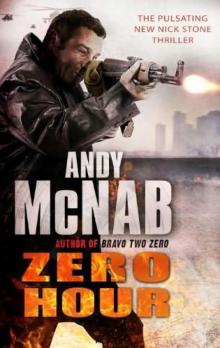 NS13 Zero Hour (2010)
NS13 Zero Hour (2010)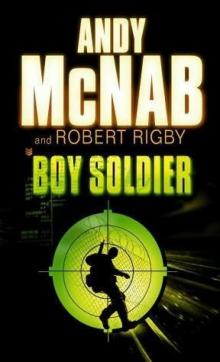 Boy soldier bs-1
Boy soldier bs-1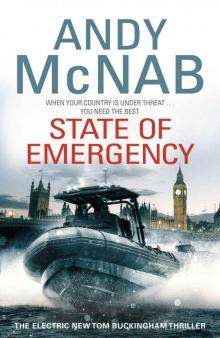 State Of Emergency: (Tom Buckingham Thriller 3)
State Of Emergency: (Tom Buckingham Thriller 3)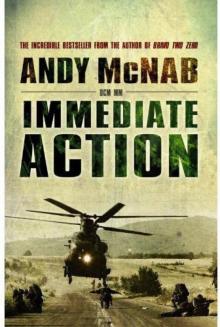 Immediate Action
Immediate Action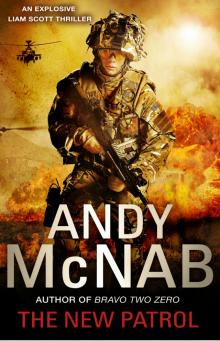 The New Patrol
The New Patrol Crisis Four
Crisis Four Boy Soldier
Boy Soldier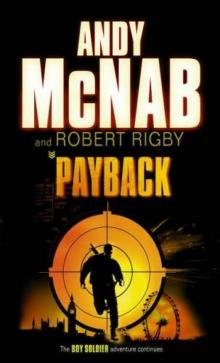 Payback bs-2
Payback bs-2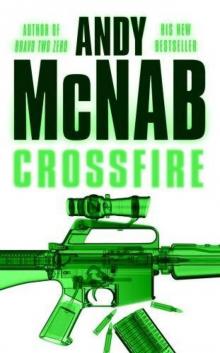 Crossfire ns-10
Crossfire ns-10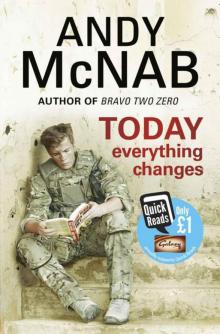 Today Everything Changes: Quick Read
Today Everything Changes: Quick Read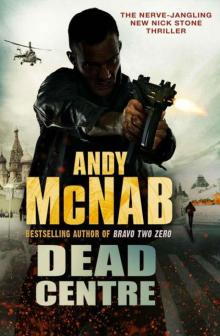 Dead Centre
Dead Centre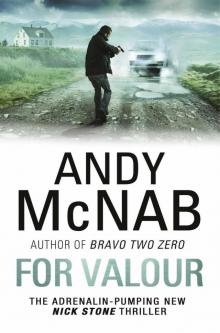 For Valour
For Valour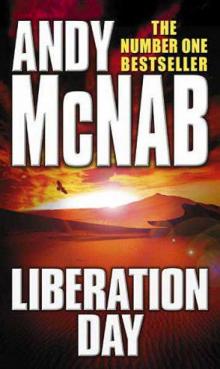 Liberation Day ns-5
Liberation Day ns-5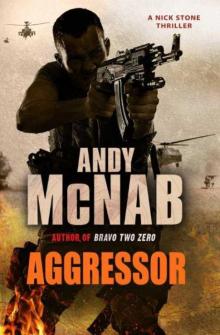 Aggressor ns-8
Aggressor ns-8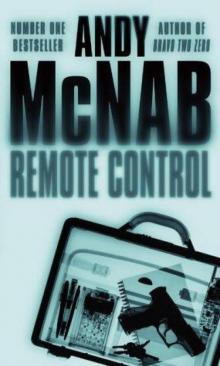 Remote Control ns-1
Remote Control ns-1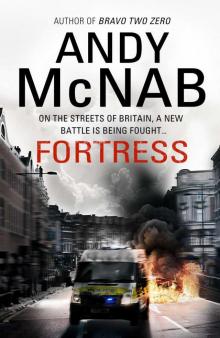 Fortress
Fortress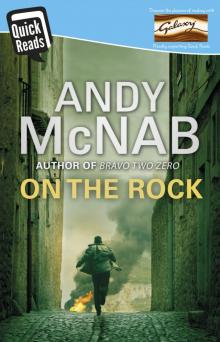 On the Rock
On the Rock Dark Winter
Dark Winter